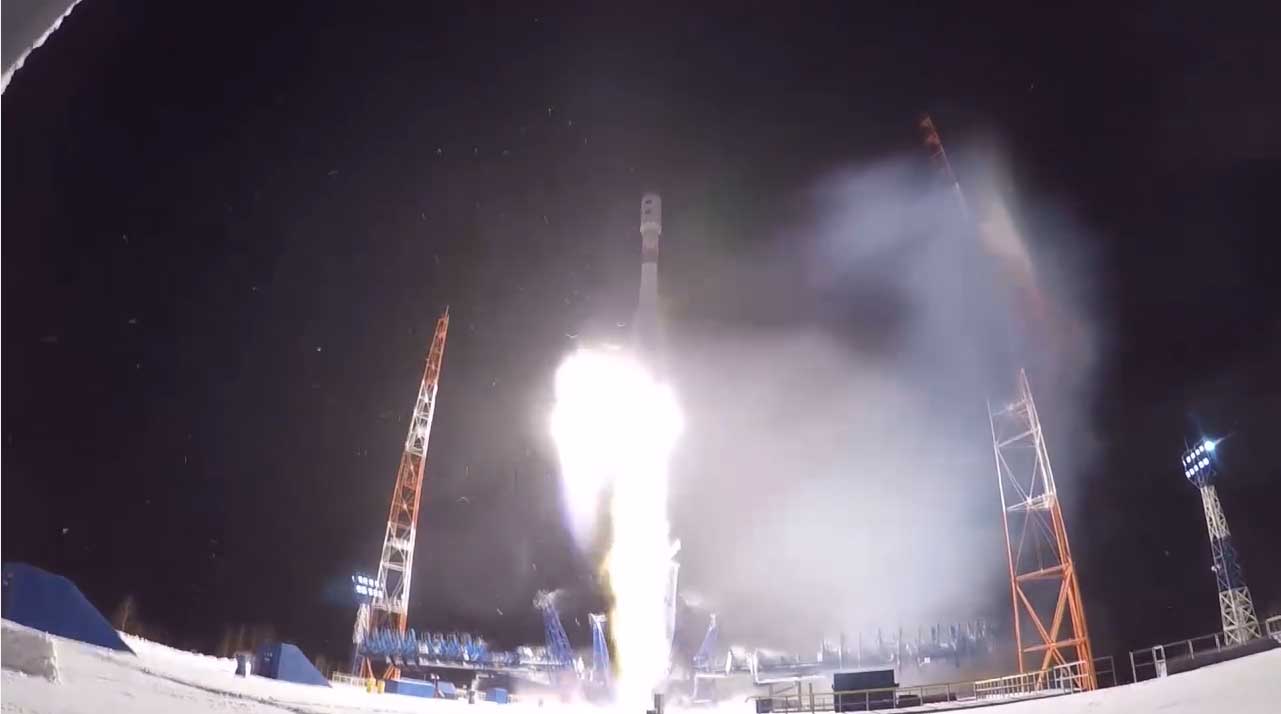Soyuz rocket launches Glonass-M navigation satellite for Russian military
A Soyuz rocket launched a new navigation satellite into orbit for Russia's military forces on Monday (March 16) in a dazzling nighttime liftoff from a snowy launchpad.
The Soyuz 2.1b rocket launched the Glonass-M navigation satellite from the Plesetsk Cosmodrome in northern Russia at 9:28 p.m. Moscow time (2:28 p.m. EDT/1828 GMT). The Soyuz's Fregat upper stage then delivered the satellite to its final orbit.
"On March 16, 2020, at 18:28 UTC a Soyuz-2.1b carrier rocket equipped with a Fregat booster manufactured by NPO Lavochkin (part of Roscosmos) launched successfully from Plesetsk cosmodrome carrying a Glonass-M navigational satellite manufactured by ISS Reshetnev company," Russia's space agency Roscosmos announced in a statement. "The satellite separated routinely from the booster after three Fregat booster service propulsion unit burns."
Related: The world's tallest rockets: How they stack up

Russia's Glonass-M satellites make up a constellation of space-based navigation craft for the country's Glonass system orbital group.
"They transmit navigational information and time data to the ground, maritime, air and space customers," Roscosmos officials said in a statement.
- Rocket Launches: The Latest Videos, Photos and Missions
- Russia's Space Centers and Launch Sites in Pictures
- The Top 10 Russian and Soviet Space Missions
Email Tariq Malik at tmalik@space.com or follow him @tariqjmalik. Follow us @Spacedotcom, Facebook and Instagram.
Breaking space news, the latest updates on rocket launches, skywatching events and more!
OFFER: Save at least 56% with our latest magazine deal!
All About Space magazine takes you on an awe-inspiring journey through our solar system and beyond, from the amazing technology and spacecraft that enables humanity to venture into orbit, to the complexities of space science.

Tariq is the award-winning Editor-in-Chief of Space.com and joined the team in 2001. He covers human spaceflight, as well as skywatching and entertainment. He became Space.com's Editor-in-Chief in 2019. Before joining Space.com, Tariq was a staff reporter for The Los Angeles Times covering education and city beats in La Habra, Fullerton and Huntington Beach. He's a recipient of the 2022 Harry Kolcum Award for excellence in space reporting and the 2025 Space Pioneer Award from the National Space Society. He is an Eagle Scout and Space Camp alum with journalism degrees from the USC and NYU. You can find Tariq at Space.com and as the co-host to the This Week In Space podcast on the TWiT network. To see his latest project, you can follow Tariq on Twitter @tariqjmalik.

